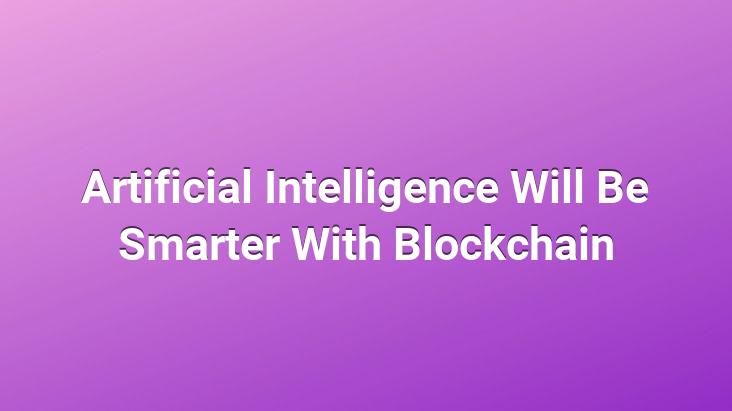With cryptocurrencies, financial power is now transferred from the government and big banks to individuals. Blockchain technology is also democratizing artificial intelligence. Soon, every business will be able to offer personalized recommendations that giant retail companies like Amazon specialize in.
Imagine, for example, walking into a neighborhood store for the first time and discounts on items you don’t yet have that fit your taste and size appear instantly.
<
This is the intuitive experience that artificial intelligence promises us.. The challenge for small businesses isn’t the costs of AI systems – AI systems are getting cheaper and more accessible.. The problem is accessing sufficient quality data about customers to contribute to these systems.. Some retailers have access to their customers’ data through multiple channels and hardware, often through a third party.. However, the behavioral data they have does not provide enough information about the products customers want to buy.. What’s more, many retailers are only able to keep a small portion of the products customers buy, which is hardly enough for AI systems to work properly.
So blockchain technology could revolutionize the field.. The key point of this technology is that the database is open and decentralized, yet it has serious foundations in terms of privacy.. Buyers can authorize the stores they shop from to store their purchase data in a blockchain ledger, thus protecting the privacy of both consumers and sellers.
For example, a shoe boutique with only a few branches and an e-commerce site will never it won’t have the volume that offers the most choice at the lowest prices, but it will be able to win over a group of customers who value products from small but high-quality manufacturers. Don’t you want a pair of red shoes?” It is very difficult for boutique customers to compete with artificial intelligence technology.. (There are many other clever uses for this personalizing technology that are hard to detect.)
If a blockchain ledger were to record all of a consumer’s purchases, a shoe boutique would have a pair of matching outfits, even if the outfit was bought from another store. could recommend the shoe to his customers via email. And in a real shop, a salesperson can scan an app on the customer’s phone to see the customer’s current outfits and show the most suitable items to match that outfit.
Pretty nice.. But when we live in a world where all data is exploited for malicious purposes, as in the case of Facebook, why should we trust a huge database of products that everyone buys?
Because blockchain technology is turning the balance of power, allowing customers – not businesses – to control.
Each consumer can authorize the inclusion of the data of the product they buy into the blockchain.. And each consumer can control access to the digital key that makes this data visible to other users.. In fact, retailers will never have direct access to this data, but using them AI engines will be able to temporarily access consumers’ profiles and purchase history, then match this data with items in the seller’s inventory to provide better product recommendations in real time.. When you want to allow access to your data for a more personalized recommendation, you can do so. Otherwise, your data is confidential.
Moving to comprehensive databases maintained by consumers rather than fragmented databases collected by individual vendors will result in more data being available for recommendation and other predictive marketing systems.. This will result in a remarkable improvement in the accuracy of recommendations.
This type of consumer-centric system also creates a data stream for machine-learning systems: the ultimate feedback loop. Consumers will be able to more easily determine whether recommendations are valuable, thus providing feedback to the system, increasing the accuracy of recommendations. Of course, individual retail systems are already getting feedback right now, but more data will be available with the blockchain approach.
Blockchain databases have another use for artificial intelligence applications.. Blockchains are immutable, they are fixed. Thus, artificial intelligence models will be able to safely access the source of each data.. If a data turns out to be unreliable, the source of that data can be traced and deleted.
With blockchain, we are entering a new era of using much more useful artificial intelligence systems.. Industries will make our lives richer, safer and more convenient by contributing to the development of artificial intelligence systems.
VentureBeat

